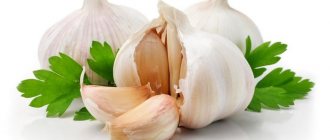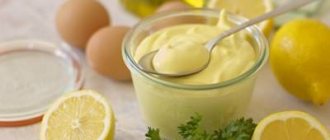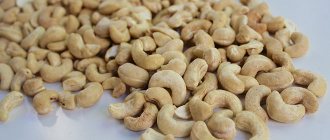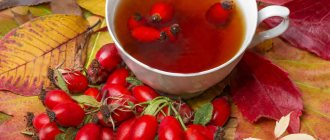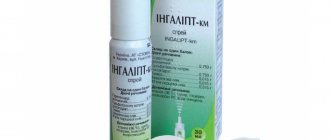A nursing mother knows that the consumption of exotic fruits while breastfeeding is strictly limited. Such fruits negatively affect the baby’s well-being and often cause an allergic reaction. The only exception is bananas.
In addition, fruits brought from distant exotic countries are chemically treated for long-term storage. Preservatives have a negative impact on the health of both the baby and the mother. They lead to severe poisoning!
However, doctors allow some fruits to be consumed 3-4 months after the birth of the child, when the baby’s body adapts to the new food. Pomegranate and pomegranate juice are among such fruits. However, this fruit and drink can only be consumed by a nursing mother with extreme caution and in compliance with certain rules.
Useful properties and composition
Pomegranate contains 15 rare and essential amino acids! Only meat contains such acids. The pulp of the fruit has special astringent properties that treat colitis and diarrhea. In addition, pomegranate is useful for nursing mothers because it restores hormonal imbalance, which is so important after childbirth.
Pomegranate and grant juice perform a number of beneficial properties in the body:
- Strengthens the immune system;
- Restores and improves skin;
- Resists hair loss and ensures rapid hair growth;
- Maintains visual acuity;
- Regenerates tissue;
- Eliminates diarrhea in a nursing mother;
- Relieves pain during menstruation;
- Normalizes metabolism;
- Stabilizes hormonal levels;
- Strengthens the heart and blood vessels;
- Helps with anemia;
- Lowers blood pressure;
- Extends life expectancy and slows down aging.
In addition to beneficial amino acids, the fruit contains essential vitamins and elements, each of which plays a vital role in the body of mother and baby.
| Vitamins and elements | Impact on the body | Contents per 100 g of product |
| Vitamin A (retinol) | Restores skin, improves condition and prevents hair loss, normalizes and preserves vision | 5 mcg |
| Vitamin B1 (thiamine) | Ensures normal metabolism, improves memory and attention, stimulates brain function | 0.4 mg |
| Vitamin B2 (riboflavin) | Relieves fatigue and anxiety, improves vision and reduces eye fatigue, ensures clean and elastic skin | 0.01 mg |
| Vitamin B5 (pantothenic acid) | Produces necessary energy, increases life expectancy, ensures normal growth and helps with dermatitis | 0.5 mg |
| Vitamin B6 (pyridoxine) | Normalizes the functioning of nerve cells, activates brain activity, improves skin condition | 0.5 mg |
| Vitamin B9 (folic acid) | Keeps the body in working order and improves emotional state, improves immunity | 18 mcg |
| Vitamin C (ascorbic acid) | Forms and strengthens the immune system, helps with stress and colds, improves mood and appetite, gives vigor and strength | 4 mg |
| Vitamin E (tocopherol) | Slows down aging and normalizes hormonal levels, improves blood composition and strengthens blood vessels, increases tone | 0.4 mg |
| Vitamin PP (niacin, nicotinic acid) | Improves memory, has a positive effect on digestion and heart function, helps with stress and insomnia, restores sleep, ensures normal blood circulation | 0.5 mg |
| Calcium | Strengthens the nail structure and bone skeleton, normalizes and regulates blood pressure, ensures normal blood clotting | 10 mg |
| Potassium | Regulates water balance, normalizes heart rate, improves brain function, ensures the functioning of muscles and tissues | 150 mg |
| Sodium | Prevents seizures, promotes healthy heart and brain function, and is good for teeth | 2 mg |
| Magnesium | Strengthens bones, regulates the functioning of the heart and blood vessels, helps with headaches and menstrual pain | 2 mg |
| Iron | Supplies oxygen to tissues, ensures energy metabolism, cell growth and normal digestion. | 1 mg |
| Phosphorus | Provides growth and strengthens teeth and bones, stabilizes kidney function, improves memory and brain function | 8 mg |
Can a nursing mother have pomegranate juice?
Most often, the question of whether to eat or drink a particular product arises among those mothers whose children are prone to allergic reactions or do not tolerate new ingredients in the diet.
In this case, it is really better to put off potentially dangerous drinks for a while so as not to cause discomfort in the baby’s stomach: what is drunk or eaten is processed into breast milk, entering the bloodstream, and therefore there may be unwanted allergens there.
So if you don’t know whether a nursing mother can have pomegranate juice or not, first of all, pay attention to this factor. If you and your baby do not suffer from allergies and rashes (or you have never observed such phenomena in your child before), then you can certainly try introducing pomegranate juice into your diet. Pomegranate juice during feeding allows you to replenish the supply of essential microelements, and can also be an excellent nutritional supplement if you are diagnosed with low hemoglobin after childbirth and have an iron deficiency in your body.
Pomegranate juice during feeding allows you to replenish the supply of essential microelements, and can also be an excellent nutritional supplement if you are diagnosed with low hemoglobin after childbirth and have an iron deficiency in your body.
Since during breastfeeding most of the beneficial substances leave the mother’s body along with breast milk, a pressing question arises - how to maintain your health and beauty? And this is where similar products come to the rescue, as they are a source of valuable vitamins. In this case, it will be a necessary supplement to your diet that will help restore your body's resources and prevent the development of anemia.
If the child tolerated the new product well and did not experience colic, bloating, or bowel movements, you can increase the volume of pomegranate juice and drink it more often and in larger quantities. But if the baby did not tolerate the healthy red drink very well, or, moreover, he developed a rash or spots on the skin, then, alas, he will have to temporarily forget about this juice.
It is believed that only the first weeks after childbirth should you strictly limit your diet in order to avoid digestive problems in the baby and not provoke the appearance of diathesis.
Sometimes this recommended period may be delayed a little, but by two months after birth you can try to introduce new types of dishes into your diet. And such a healthy drink will certainly be on the list of necessary ingredients for the health of the mother and her baby.
Contraindications for use
A separate point needs to be mentioned is the fact that any product rich in iron has binding properties. This means that if a mother suffers from constipation after childbirth, drinking pomegranate juice can worsen this phenomenon. Therefore, if you have such problems, nursing mothers should not drink pomegranate juice.
This drink is also quite sour and contains substances that can aggravate diseases of the gastrointestinal tract. If you have gastritis, often suffer from heartburn, or, especially, have been diagnosed with a peptic ulcer, pomegranate juice should also not be included in your diet after childbirth.
Remember that the pomegranate peel itself contains toxic substances that negatively affect health. Therefore, it is best to drink homemade pomegranate juice - fresh juice that you made with your own hands. To do this, you need to wash the pomegranate, then thoroughly peel it and use a juicer or a special press.
A nursing mother should not drink store-bought pomegranate juice for three reasons:
- Firstly, in large-scale production, whole pomegranates can be used along with the peel, and this is harmful.
- Secondly, ready-made store-bought juices contain a lot of sugar and preservatives, which do not provide any benefit to a woman’s body.
- Thirdly, there are very few vitamins in such a product as a result of special processing and preservation, and therefore fresh pomegranate juice will be the most beneficial for nursing mothers.
So, can a nursing mother drink pomegranate juice? The easiest way is to check the “readiness” of your baby’s body and check the list below to understand whether this drink is worth buying.
The dangers of eating pomegranate
The danger of eating pomegranate during lactation lies in the intense red color of the fruit. Brightness indicates the content of a strong allergen. As a result, the baby develops a rash, peeling and redness, cough and runny nose.
Pomegranate juice and pomegranate contain a lot of acid, which negatively affects the functioning of digestion and the stomach. An excess of this fruit in the body leads to bloating and pain, causing colic in a newborn baby. Therefore, pomegranate should not be consumed if you have stomach diseases or digestive problems.
Astringent properties have a strong effect on intestinal function and stool condition. Therefore, the fruit is contraindicated for mother and baby with constipation. But for diarrhea, pomegranate and pomegranate juice will provide effective help.
A nursing mother should eat pomegranate with caution if she has low blood pressure. Please note that the peel of the fruit contains strong toxic substances. Alkaloids cause intoxication and seriously poison the body, so carefully peel the peel from the fruit.
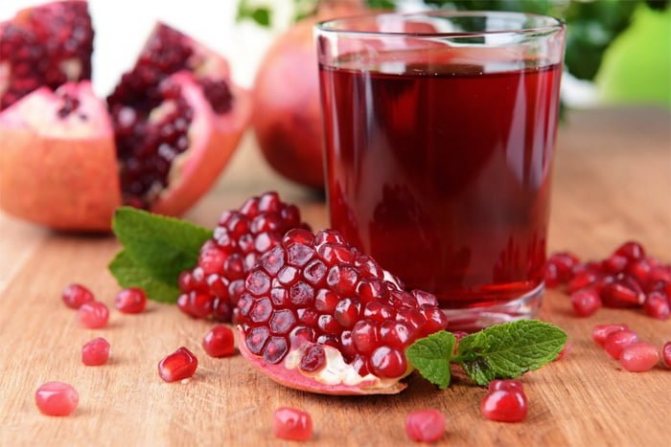
How to choose good pomegranate fruits and juice
The quality of products on a nursing mother’s table should be at their best, so you need to learn how to choose them correctly in the store.
- Fruits should be chosen in bright colors.
- The skin should look beautiful (without spots of rot or damage).
- You can compare several fruits by weight: a ripe pomegranate will be heavier than the rest.
- If you knock on the fruit, you will hear a characteristic dull sound.
- The top of the fruit should not be green. It's good if it's dry.
- Pomegranate juice should be purchased only from trusted retail outlets and preference should be given to a 100% natural product.
- Good juice has a rich burgundy hue.
- The container is glass only, there is a special protection on the lid that can be removed with a knife.
- The label must be of good quality with clear printing without streaks. A low-quality label indicates a fake!
- We must carefully look at the production time of the product. Juice from ripe fresh pomegranates will be made in September–November.
- Expiration dates are also important, as expired products are often found in stores.
- If possible, it is better to give preference to a self-prepared freshly squeezed drink.
The woman herself must decide whether she should eat pomegranates during breastfeeding or postpone this delicacy until the end of breastfeeding. It is important not to rush into new products and approach the matter responsibly, then you can get only benefit and pleasure from eating pomegranates without risk to your baby.
Recommendations for use
- Introduce pomegranate and pomegranate juice into your diet during lactation no earlier than three months after birth. The optimal age of the baby is 5-6 months;
- For the first test, eat one or two pomegranate seeds in the morning and observe the baby’s reaction for two days. If there are no negative consequences, you can safely eat pomegranate while breastfeeding;
- If you have stomach problems or allergies, it is too early to introduce fruit into your diet. You can try again at least a month after the first test;
- Gradually increase the dosage of consumed fruit by two times in relation to the previous portion;
- Start drinking pomegranate juice with 30 ml no more than once a week. Then gradually increase the portion to 150 ml per day;
- At first, dilute the juice by half with warm water, which will reduce the aggressive composition. Then gradually reduce the dose of water and switch to a full-fledged drink;
- Do not buy ready-made juice in bags or bottles, as they often contain many preservatives, dyes and chemicals. Drink only natural freshly squeezed juice.
Remember the main principle when breastfeeding is not to overeat.
After all, even safe products, if abused, can cause a negative reaction in a baby. However, if you follow nutritional recommendations for a nursing mother, you can consume many foods without risk to lactation and the baby. For more information on what foods you can eat while breastfeeding, read the link https://vskormi.ru/mama/razreshennie-produkti-pri-grudnom-vskarmlivanii/. Subscribe to our VKontakte group
In what form is it better to eat pomegranate?
According to the recommendations of experts, a nursing woman is responsible for the health of the child, which means that her nutrition should be at the highest level of safety. It is advisable to consume local fruits and vegetables. Many people believe that new foods should be introduced to a young mother in small quantities, gradually. However, there is such a thing as accumulated allergies. The body's response may not appear immediately, but after a week. Milk may change the taste to sour. Therefore, the choice of form of use depends on personal preferences. When drinking juice, it should not be mixed with honey or sugar. Some substances deactivate all the necessary vitamins in the drink. It is preferable for the mother to squeeze the pomegranate juice herself.
We recommend reading: Green tea during breastfeeding

